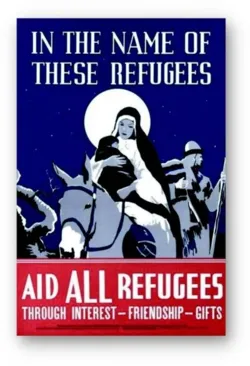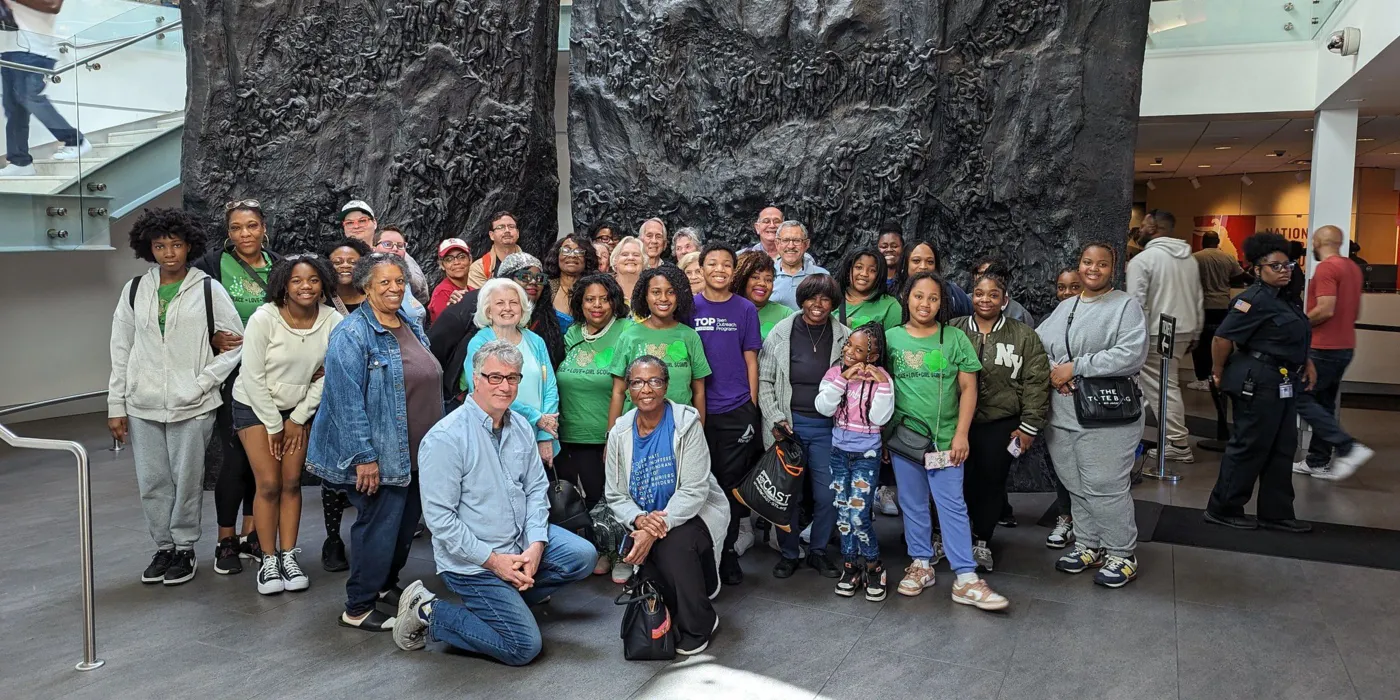
Download a fact sheet to share with your community.
The Episcopal Church has been actively concerned with the rights of refugees and migrants since the United States opened its borders to the first waves of immigrants from war-torn countries in the 1930s. Episcopal Migration Ministries traces its origin to this time, when the Episcopal Church began to advocate for migrants to raise money to purchase steamship passage for refugees fleeing Nazi Europe.
In the decades since, the Episcopal Church has been involved in direct service, community organizing, and public policy advocacy for the rights of voluntary migrants and immigrants, as well as forcibly displaced refugees, asylum seekers, and other populations. To learn more about the Church's direct service work through the Episcopal Migration Ministries, please visit www.episcopalmigrationministries.org.
The Episcopal Church's public policy positions are determined through resolutions of the governing bodies of the Church: the General Convention and the Executive Council.
These resolutions are informed by the local ministry and advocacy priorities of dioceses, congregations, and their members, and can be categorized into thematic groups:
- Upholding international human rights law for migrants and displaced persons
- Upholding refugee and asylum law for individuals seek protection
- Upholding family unity in immigration and refugee policy
- Support for comprehensive immigration reform in the United States
- Support for humane alternatives to immigrant detention
- Support for individuals feeling specific conflicts
- Supporting Episcopal Migration Ministries' refugee resettlement and asylum programs, as well as its church engagement work to network migration ministries across the Church, and to educate and inspire local congregations to welcome newcomers.
The work of the Presiding Bishop's staff, including The Episcopal Church's Office of Government Relations in Washington, D.C., and Episcopal Migration Ministries, is informed, undergirded, and supported by General Convention and Executive Council resolutions. Many dioceses and congregations derive their own policies and ministry priorities from these resolutions.
Resources for further learning about The Episcopal Church's migration policy positions:
- Office of Government Relations: Migration, Refugees, & Immigration
- Summary: Episcopal Church Policy on Immigration and Refugee Issues
- Archives of The Episcopal Church Research Report: Policy Advocacy for Immigrants and Refugees
- Archives of The Episcopal Church Research Report: Policy Advocacy for Families and Young People
- Advocating for Refugee Protection and Resettlement
How you can help:
Advocate: Become a member of the Episcopal Policy Network (EPPN), a grassroots network of Episcopalians across the country dedicated to carrying out the Baptismal Covenant call to "strive for justice and peace" through the active ministry of public policy advocacy. Facilitated by the Office of Government Relations, this network helps influence the development of legislative and policy of the U.S. federal government on critical issues:
Sign up for the Episcopal Public Policy Network (EPPN).
Become a Community Sponsor: The ministry of community sponsorship invites congregations and community groups to welcome their new neighbors (refugees or asylum seekers) by offering housing, basic needs support, and friendship as they rebuild their lives in the United States. Community sponsorship opportunities are available through EMM's local resettlement affiliates, as well as through EMM's Neighbor to Neighbor program.
Learn more about the Neighbor to Neighbor program.
Give: Show your support for our newest neighbors and make a gift to Episcopal Migration Ministries. Every gift ensures refugees resettled through EMM are given a solid foundation to begin again in safety and hope.
